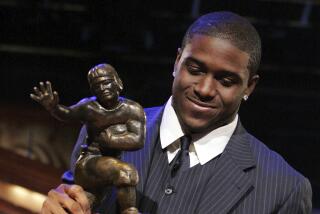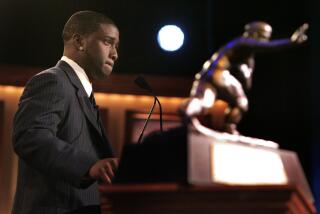Smokeless tobacco may be on its way out of Major League Baseball parks
Major League Baseball begins the 2011 season in two days, and if public heath officials have their way it will be the last season during which players will be able to chew and spit smokeless tobacco on the field.
The leaders of 15 public health departments in cities with professional baseball teams sent a letter Monday to MLB Commissioner Bud Selig and Michael Weiner, executive director of the union representing major league players, urging them to forbid the use of smokeless tobacco products. Tobacco has been banned in baseball’s minor leagues since 1993.
“The use of smokeless tobacco endangers the health of Major League ballplayers and sets a terrible example for the millions of young people who watch baseball at the ballparks and on TV,” the health chiefs wrote. The letter continues:
Tobacco use is the number one cause of preventable death in the United States, killing more than400,000 people each year. As cigarette smoking has declined, the tobacco industry has increased its marketing of smokeless products and is spending record sums to promote them. But smokeless tobacco use is itself very dangerous, causing serious diseases of the mouth, including oral cancer. In addition, there is reason to worry that smokeless tobacco use by young persons may serve as a gateway to cigarette smoking, this nation’s leading preventable cause of premature death and disease.
As officials in Major League cities around the country, we know that baseball is important to civic life and that ballplayers are local heroes. They should provide positive role models and not associate themselves with a product that causes disease and death.
Signatories include Dr. Jonathan Fielding, director of the Los Angeles County Department of Public Health; Dr. Thomas Farley, commissioner of the New York City Department of Health and Mental Hygiene; Dr. Bechara Choucair, commissioner of the Chicago Department of Public Health; Barbara Ferrer, executive director of the Boston Public Health Commission; Dr. Oxiris Barbot, commissioner of the Baltimore City Health Department; and 10 others representing cities from Seattle to the District of Columbia.
It’s certainly hard to argue that smokeless tobacco is good for public health. The products cause oral cancer and pancreatic cancer, and have been linked with other types of cancer. They also contribute to heart disease, gum disease and other problems.
The “Knock Tobacco Out of the Park” campaign was initiated by the American Academy of Pediatrics, the American Medical Assn., the American Cancer Society, the American Dental Assn., the American Heart Assn., the American Lung Assn., Oral Health America, Legacy, the Campaign for Tobacco-Free Kids and the Robert Wood Johnson Foundation. They are urging action now because Major League Baseball and the players union are negotiating a new contract that will take effect next year and is expected to remain in force for five seasons.
The prohibition would apply to managers, coaches and other baseball staff in addition to players.
The issue has received significant attention from members of Congress, with Democratic Senators Richard Durban of Illinois and Frank Lautenberg of New Jersey pressing the players union and the league to include a smokeless tobacco ban in their new contract. They were motivated in part by a Washington Post story in which Nationals pitching ace Stephen Strasburg explained why be began dipping tobacco and why he has resolved to quit:
“I was one of those kids that picked it up based on seeing ballplayers do it,” Strasburg said. “It’s not a good thing, and I don’t want to represent myself like that. That’s one of the big reasons. Another reason is, when I do have kids, I don’t want my kids to be like that, too.”
Among the role models Strasburg imitated was Hall of Famer Tony Gwynn, the former San Diego Padres star who coached Strasburg at San Diego State University. Last summer, Gwynn was diagnosed with cancer of the parotid gland, a salivary gland on the jawline. The tumor had wrapped itself around a crucial nerve that controlled movement on the right side of his face. Treatment was no picnic.
“Surgery to remove a tumor resulted in paralysis in the right side of his face, compromising his ability to smile or laugh,” according to this Los Angeles Times story. “He couldn’t blink his right eye. Radiation and chemotherapy left him so weak that he had to use a walker to get around. He estimated that he lost about 80 pounds from his 300-plus-pound frame.”
Gwynn has blamed his tumor on smokeless tobacco, which he has been addicted to since his rookie days with the minor league Walla Walla Padres in Washington State.
For more on the campaign against smokeless tobacco, you can visit the coalition’s website here.
RELATED: Cigarettes in a yummy lozenge: Parents of toddlers, beware
More to Read
Get our high school sports newsletter
Prep Rally is devoted to the SoCal high school sports experience, bringing you scores, stories and a behind-the-scenes look at what makes prep sports so popular.
You may occasionally receive promotional content from the Los Angeles Times.







